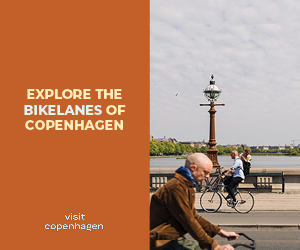Reese Fernandez travelled frequently as a child, with her missionary mother. After witnessing much suffering, she was inspired to find solutions to the social problems she saw. Fernandez went on to win a scholarship to Ateneo University, where she studied Management. She has since used her skills to train people to become social entrepreneurs, and has given them the opportunity to confront many challenges, from rebuilding houses after a cyclone to teaching organic agriculture to farmers.
Payatas is one of the Philippines’ largest dumpsites, and home to thousands of families struggling to survive through scavenging or occasional odd jobs. Many mothers are forced to stay at home with their children while their husbands seek work. Being at home on the surrounding dumpsite, some of these women found an opportunity to earn a living. They would search for scraps of cloth within the waste, and weave rugs from them.
The trend soon grew, but due to a lack of market access, the women relied heavily on middlemen to help sell their goods. Unfortunately the middlemen took advantage of the situation by sourcing the scraps directly from the factories. Soon enough, the women were obliged to pay for the scraps, as they were no longer to be found on the dumpsite.
The women would spend days and weeks weaving rugs and selling them to the middlemen, who received the bulk of the profit. The women were making on average one penny for each product they sold. With a group of students from the Business Innovations class, Reese visited the rug-weavers in Payatas and successfully identified key problems and offered solutions. They helped the women improve the quality and style of the rugs, and transformed them from multicoloured to solid-coloured. Market response to the elegant and stylish rugs was remarkable.
In 2007, Reese co-founded Rags2Riches, a social enterprise company that revolutionised the women’s business practices by arranging for them to sell their products directly to retailers. ‘Rags2riches supplies the scraps direct from the factory to the mother,’ Fernandez explains.
Fernandez and her team of young professionals sought advice from designers, who demonstrated how the rugs could be transformed into fashion handbags, eyeglass cases and wine-bottle holders, all for sale in high-end shops. ‘Everything we use is either recycled or organic. We transform scraps of raw materials into something of greater value. My vision is not just to create livelihoods and income, but also to make sustainable, elegant products.’
Fernandez is proud of the products. ‘I absolutely love my Maria Rosa RIIR by Aranaz bag, not only because it is beautiful and functional but also because it represents the hands of the empowered women who made it … When mothers see the products in a fashion show or launch, it uplifts them. They know that they are being recognised for what they do every day. This is empowerment beyond just giving them an extra income.’
Around 300 women now work for Rags2Riches, receiving about 40% of the retail price for each item, and 54 of the women have founded a cooperative which owns a share of the company. ‘Rags2riches, together with the mothers, help create a system. I hope that in future the women will have enough money to send their kids to good schools.’
Rags2Riches also provides them with training in personal finance, health insurance and nutrition. Fernandez wants to scale up the project by establishing the Rags2Riches Innovation and Social Entrepreneurship (RISE) Centre, where business professionals and technical experts will create new products to promote Rags2Riches’ ‘Four P’ goals: empowering People; protecting the Planet by ‘upcycling’ waste, turning it into high-value products; making sustainable profits that benefit the community and the company; and being a Positive influence on society.
Reese Fernandez was selected as a Young Laureate because her project has successfully empowered women. She describes herself as ‘optimistic, dynamic, and eco-ethically innovative’. The judges of the competition praised Reese for her resourceful nature in the quest to find solutions to social problems.











